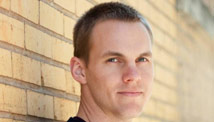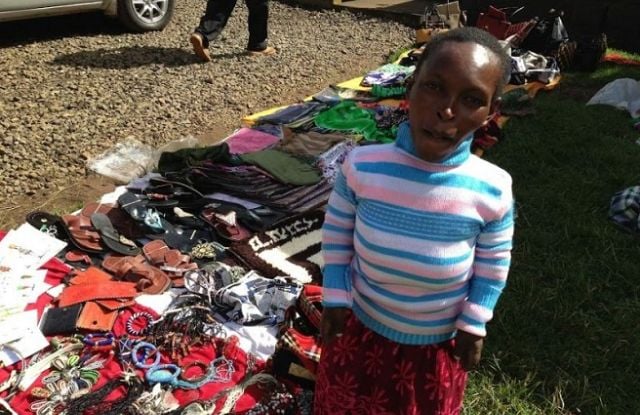Why my church rebelled against the American Dream

By David Platt, Special to CNN
We American Christians have a way of taking the Jesus of the Bible
and twisting him into a version of Jesus that we are more comfortable
with.
A nice middle-class American Jesus. A Jesus who doesn’t mind
materialism and would never call us to give away everything we have. A
Jesus who is fine with nominal devotion that does not infringe on our
comforts.
A Jesus who wants us to be balanced, who wants us to avoid dangerous
extremes, and who for that matter wants us to avoid danger altogether. A
Jesus who brings comfort and prosperity to us as we live out our
Christian spin on the American Dream.
But lately I’ve begun to have hope that the situation is changing.
The 20th-century historian who coined
the term “American Dream,” James Truslow Adams, defined it as “a dream…
in which each man and each woman shall be able to attain the fullest
stature of which they are innately capable, and be recognized by others
for what they are.”
But many of us are realizing that Jesus has different priorities.
Instead of congratulating us on our self-fulfillment, he confronts us
with our inability to accomplish anything of value apart from God.
Instead of wanting us to be recognized by others, he beckons us to die
to ourselves and seek above all the glory of God.
In my own faith family, the Church at Brook Hills, we have tried to
get out from under the American Dream mindset and start living and
serving differently.
Like many other large American churches, we had a multimillion-dollar
campus and plans to make it even larger to house programs that would
cater to our own desires. But then we started looking at the world we
live in.
It’s a world where 26,000 children die every day of starvation or a
preventable disease. A world where billions live in situations of such
grinding poverty that an American middle-class neighborhood looks like
Beverly Hills by comparison. A world where more than a billion people
have never even heard the name Jesus. So we asked ourselves, “What are
we spending our time and money on that is less important than meeting
these needs?” And that’s when things started to change.
First we gave away our entire surplus fund – $500,000 – through
partnerships with churches in India, where 41 percent of the world’s
poor live. Then we trimmed another $1.5 million from our budget and used
the savings to build wells, improve education, provide medical care and
share the gospel in impoverished places around the world. Literally
hundreds of church members have gone overseas temporarily or permanently
to serve in such places.
And it’s not just distant needs we’re trying to meet. It’s also needs near at hand.
One day I called up the Department of Human Resources in Shelby
County, Alabama, where our church is located, and asked, “How many
families would you need in order to take care of all the foster and
adoption needs that we have in our county?”
The woman I was talking to laughed.
I said, “No, really, if a miracle were to take place, how many
families would be sufficient to cover all the different needs you have?”
She replied, “It would be a miracle if we had 150 more families.”
When I shared this conversation with our church, over 160 families
signed up to help with foster care and adoption. We don’t want even one
child in our county to be without a loving home. It’s not the way of the
American Dream. It doesn’t add to our comfort, prosperity, or ease. But
we are discovering the indescribable joy of sacrificial love for
others, and along the way we are learning more about the inexpressible
wonder of God’s sacrificial love for us.
Now, don’t get me wrong. I love my country and I couldn’t be more
grateful for its hard-won freedoms. The challenge before we American
Christians, as I see it, is to use the freedoms, resources, and
opportunities at our disposal while making sure not to embrace values
and assumptions that contradict what God has said in the Bible.
I believe God has a dream for people today. It’s just not the same as the American Dream.
I believe God is saying to us that real success is found in radical
sacrifice. That ultimate satisfaction is found not in making much of
ourselves but in making much of him. That the purpose of our lives
transcends the country and culture in which we live. That meaning is
found in community, not individualism. That joy is found in generosity,
not materialism. And that Jesus is a reward worth risking everything
for.
Indeed, the gospel compels us to live for the glory of God in a world
of urgent spiritual and physical need, and this is a dream worth giving
our lives to pursue.
Editor’s Note: David Platt, Ph.D., is the author of the New York Times bestseller Radical: Taking Back Your Faith from the American Dream and is senior pastor of the 4,000-member Church at Brook Hills in Birmingham, Alabama.



This post stirs me up! It’s everything I have been experiencing and I can’t wait to get out of here (a big comfortable bubble) and find God’s heart for the world.
Most excellent. I see this post reminding me of 1 Cor. 13:1-3. W/o Gods sacrificial love being first in the hearts of this country, we have nothing and we are nothing.
if James Truslow Adams said the American Dream is “a dream… in which each man and each woman shall be able to attain the fullest stature of which they are innately capable, and be recognized by others for what they are.”
words like ‘attain’ ‘Fullest’ stuck out to me and made me wonder if Trunslow Adams had a bible passage stuck in his head when he termed the phrase ‘American Dream’:
Eph. 4:11-16
And He gave some as apostles, and some as prophets, and some as evangelists, and some as pastors and teachers, for the equipping of the saints for the work of service, to the building up of the body of Christ; until we all ATTAIN to the unity of the faith, and of the knowledge of the Son of God, to a mature man, to the measure of the stature which belongs to the fullness of Christ. As a result, we are no longer to be children, tossed here and there by waves and carried about by every wind of doctrine, by the trickery of men, by craftiness in deceitful scheming; but speaking the truth in love, we are to grow up in all aspects into Him who is the head, even Christ, from whom the whole body, being fitted and held together by what every joint supplies, according to the proper working of each individual part, causes the growth of the body for the building up of itself in love.
if so, then i would actually agree and definately set that as my standard for self and country. thats an american dream i can get behind.
that I can attain NO fullness, nor be fulfilling to others, without the work of Christ specifically through me and therefore all that fullness is credited to Him. and that the fullest stature which I am innately capable of is NOTHING without Him and HIS submission on the cross.
Thank you Seth, thank you. My Christmas is merrier reading this.
I love this blog…it is amazing how is using David in and out of his church at such. David and I were friends in high school.
THIS SAYS SO MUCH! I really do not think we can fulfill the Great Commission the way our current understanding of “church” is. We need a spiritual bomb to destroy our “western world” churches! We need something, someone to somehow come and rock our current paradigm. “Oh Jesus, will you be the one…?
We find ourselves giving to our local church – for what???? Better air conditioning, new carpet, new paint, the re-model, more parking, better chairs/pews, more, more, more!
Imagine if those reading this blog would begin to live this way in their personal life! Imagine if you would begin to CHALLENGE the current system set up in your churches. Imagine if you would begin to give of your time and money for the causes stated in this article. JUST ONE FAMILY could dig a well and save hundreds of kids from disease! Just one family could keep MANY families from starvation!
CHURCH, WAKE UP!
What in God’s name are we doing? We are in a slumber. I’m sick of new carpet, I’m sick of more. We are walking around zombie-like just doing what we have always done. It’s time to break out and be set free to do what Jesus has set us free to do!
One kid I hang around just gave me $378 and wants me to use it to feed people in the slums of Manila. He’s getting it!
Please understand, I love the church but I cannot stand what WE (yes me!) have become.
I am changing – daily. And I am being set free!!!!!!!!!!!!!
From Boise, Idaho God bless you all and Merry Christmas.
This is what we need to hear more of. We need more examples of churches forgoing the American Dream and pursuing the Kingdom Dream. Thanks for sharing it…..stirs my spirit.
I just ordered a copy for myself and my father. I can’t wait to read it!
just started this book last night…and thought of you while reading it this morning. merry christmas. blessings.
Seth, my wife and I met you in Granada with our son Frank and Bekah. This is our Church and this book and ministry is what has redirected our life. We live in His Grace everyday and we are thankful for His Mercy in not giving us what we deserve….Bless you and your family on this joyous day..Thanks Frank <><
Dear Seth,
Thank you so much for passing this on…going to get dressed and see if I can find this book locally…there really is a “stirring” amongst many of God’s people and we can take “heart”….reminded me of a song of long ago, “It only takes a spark to get a fire going”
This is good bro, i just picked up the book last week and halfway through.
I got this book for Christmas! Thank you to Bryn for giving me this. It means even more if you blogged about it, Seth! I believe a first century revolution can happen!
Thanks Seth for shining a light on this missive which is excellent. There is clearly a stirring occurring among those who don’t want to play it safe. That has always been AIM and you. Have a blessed Christmas…
Following Jesus and being able to give it all up, in an extreme way, to disciple college students in an extreme way, is exactly why my husband and I founded Saddle Lights. This article explains the heart behind why we do what we do. Thanks for sharing! We agree! -Kelly
This is the second time Ive heard this message this week!!!! Sounds timely.The LORD also led me to give up my military disability pension this past year($1,000 a mo.)I just got notification it takes effect Jan.1.
Be Blessed,
Hugh
Just finished reading this book today. Good read, very courageous concept. I love putting into print the cost of discipleship…
It’s minus the Spirit though, so the abandonment he calls for can only be accomplished by flesh and/or soul. Therefore, the humility and generosity being encouraged can quickly become the “new” law for the church, and just another way to keep score…
There’s an expression of Kingdom, but there’s no power or release of His Spirit…
I just had another friend recommend this book. Reading the article made me feel alive…and I forwarded a copy of the post to my pastor, well, one of my two pastors, as I am now bridging between two churches…the pastor I sent it to is pastor of the church where I met Jesus, but as a body will be voting on a building expansion project, and I do not support it…call me radical…and have chosen instead to put more of my financial giving to individuals and organizations that serve in the trenches to the least of these. I CAN NOT financially support expanded classroom space so that the next generation of Christians can become even more insulated, protected, and “safe” from the world.
I can’t wait to travel to Cambodia to meet the team of women serving there and the sponsored women who come out of the sex slave trade…As long as I am home caring for my mom it won’t happen, but I can live radically in the here and now in my own pocket of the globe. Can’t wait to read this book. Peace.
This is awesome! Thanks for sharing!
Thanks Seth for this blog. It is insightfully true of many hearts including mine. The stirring is undeliably real and change has already come. Blessings always on you and your family.
That is, “undeniably” real. 🙂 Blessings!
“…minus the Spirit…no power or release of His Spirit…?”
Michael. I feel like you read a lot more into the book than I did. Have you met David in person? Do you know him?